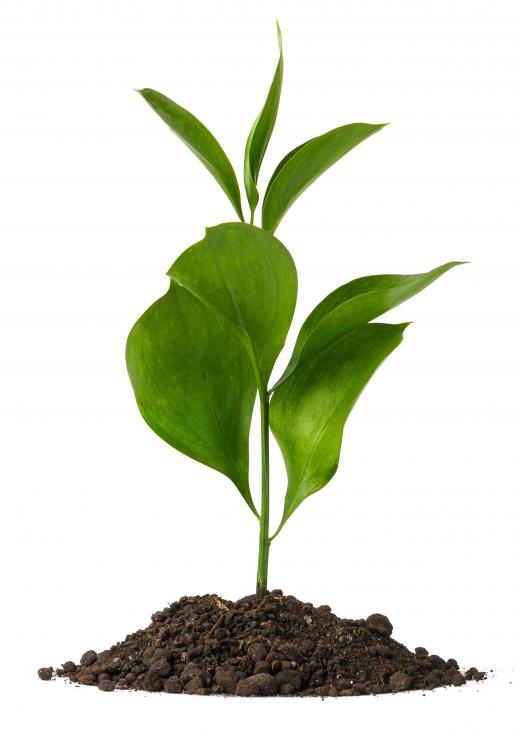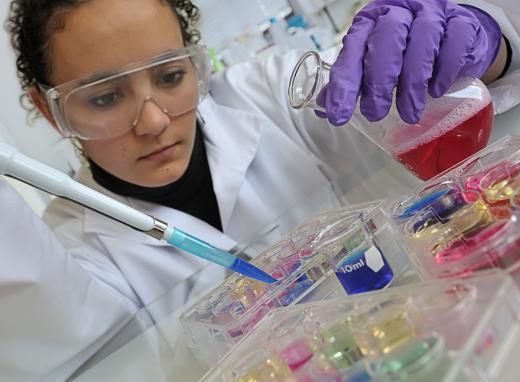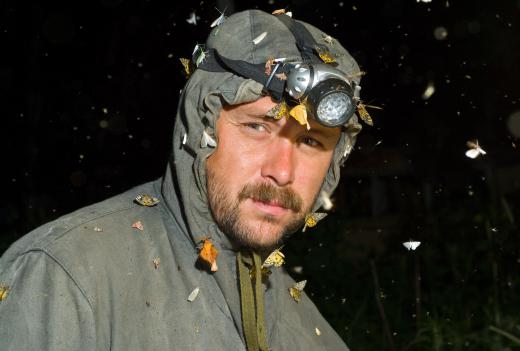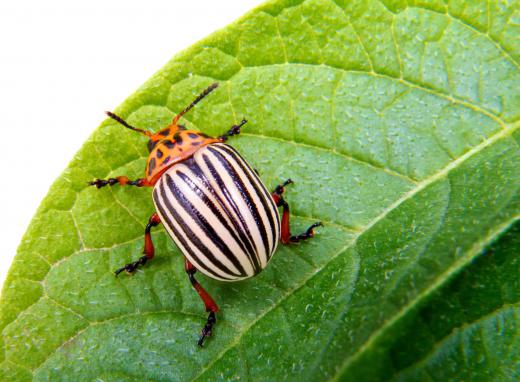What are Some Different Types of Science?
Science is a broad grouping of disciplines containing many different areas that are all linked together by a single concept: the scientific method. The scientific method represents an investigative method based on observation, deduction, hypothesizing, and experimentation that can be applied to all areas of life. Though there are many ways to look at science, one of the most common is to divide it into three broad categories, each of which contains numerous subdisciplines: formal science, natural science, and social science.
Formal science represents those disciplines that deal with symbols and theoretical ideas and their applications in the real world. Its inclusion as a science is often contested, but aspects of it are used in all other scientific disciplines. Formal science includes computer science, mathematics, and statistics.

Natural science is the science that people usually think of when they hear the term. Those studying it use the scientific method to understand nature and the physical world. Natural science and its subdisciplines are sometimes referred to as “hard sciences” by their proponents, and it includes biology, chemistry, geology, and physics.
Social science is the study of societies and the interactions within them, be they on a group or individual basis. It is sometimes referred to as a “soft science” by detractors. Social science includes anthropology, psychology, and sociology.
Each broad scientific category contains many disciplines and subdisciplines with specific research foci. A few of these types of science for each category include the following:
Formal Science Disciplines

Computer Science focuses on the processing of information in computers and other computational devices. Scientists develop new algorithms to process data, improve computer programming languages, and work with many other aspects of computers and programs that modern societies deal with daily.
Mathematics is devoted to the representation and processing of quantities. While the mathematical expression “1 + 1 = 2” may seem simple, it is actually a complex concept filled with semantics. Aspects of mathematics are used by all of the other types of science.

Statistics is the collection, analysis, and interpretation of data. While it can be used to find patterns, disprove theories, and make predictions, the science of statistics itself is not focused on any individual real world idea. Instead, the theories and laws in statistics can be applied to any properly formatted data. A Q-Test, for instance, can be used on data gathered from a chemistry, biology, or psychology experiment.
Natural Science Disciplines

Biology is the scientific study of life. This can be very broad, such as how different species might have evolved over millions of years, or it can be very specific, such as what a specific animal eats. Biology has many subdisciplines including botany, entomology, and zoology.
Chemistry studies matter, its states, and how it changes. What individual components things are made of, how they change when exposed to different temperatures, how they can be broken down, and how they can be rebuilt are all questions chemists often ask and try to solve. Subdisciplines of chemistry include biochemistry, food chemistry, inorganic chemistry, and organic chemistry.

Physics is the study of matter, forces, and interactions, and it can be studied on a very large or small scale. The study of how planets and other stellar bodies interact is an example of physics done on a very large scale, while the study of subatomic particles represents physics on a small scale. Astronomy, electrodynamics, thermodynamics, and quantum mechanics are all subdisciplines of physics.
Social Science Disciplines
Anthropology is the study of the origins, development, and uniqueness of human beings. It borrows from many other disciplines, and includes the branches of archeology, cultural anthropology, and physical anthropology.

Psychology is the scientific study of thought and behavior. Understanding why people make the choices they do, how they deal with stress, and predicting what choices they will make in the future are all aspects of psychology. Analytical, behavioral, cognitive, and gestalt are all different schools of psychological thought and theory.
Sociology is the scientific study of groups of people. How these groups interact with each-other, the rules of the groups (norms and laws), and how these groups are formed are all aspects that sociologists consider.
AS FEATURED ON:
AS FEATURED ON:

















Discussion Comments
I have a question: what are the three major branches of science?
What would you call the science of making new cement for bridges?
I am doing some projects on science. Anyone know some 'major' and 'minor' forms of scientific studies?
@ Amphibious54- Some of the science fair projects I remember from my child hood involved magnets. I remember something about a magnet experiment for kids that involved making a mini generator with magnets, copper wire, batteries and LEDs. If you search for lists of science fair ideas, you will probably find the experiment I am talking about. It was impressive because it made the light up without actually touching the battery. I think you can even substitute a potato for the battery.
@ Amphibious54- There are quite a few easy experiments for kids. One that comes to mind involves crushing a soda can with a little steam and cold water. The experiment teaches kids about the law of inertia, pressure, and thermodynamics. All you need is a soda can, tongs, a Bunson burner, and a lab sink full of cold water. The experiment may not be as glamorous as some of the electricity experiments for kids, but it does offer fast action and loud noises.
You want to put a little water in the bottom of a soda can, and heat it until the water boils and fills with steam. Next, grab the can with the tongs and flip it upside down into the cold water. Keep the can in the tongs without letting it fall into the water. The can will instantly crush with a loud boom because of the quick change in temperature of the water vapor. The contracting water vapor forms a vacuum, pulling the can in on itself.
What types of science fair projects can I help my kid create for school? I want to find simple experiments for kids that do not require many materials. The science fair is being held in the Chemistry lab at the High school so the kids will have access to things like water, electricity, and fire. Does anyone have any ideas?
Post your comments